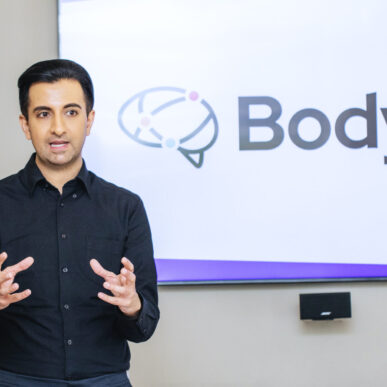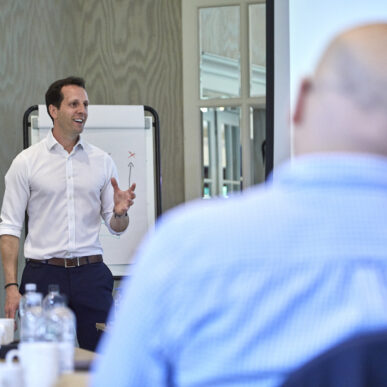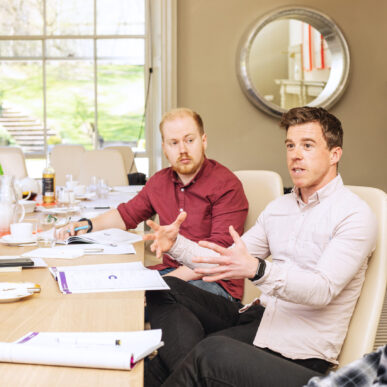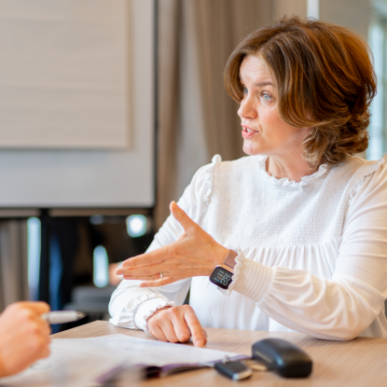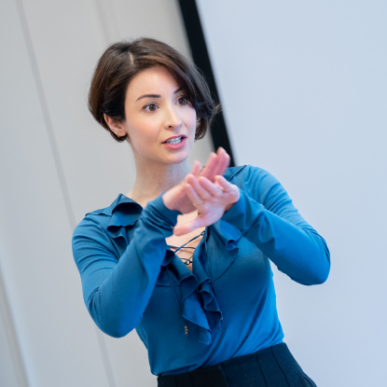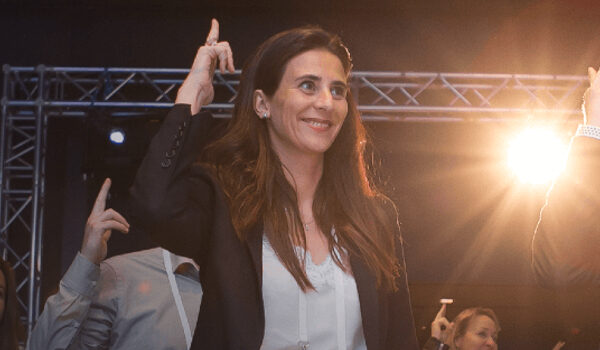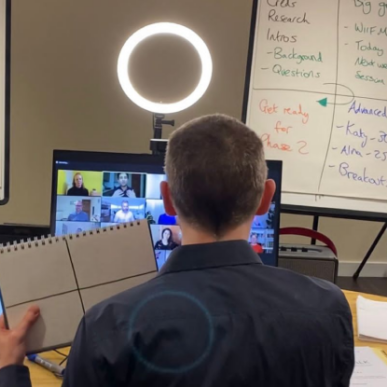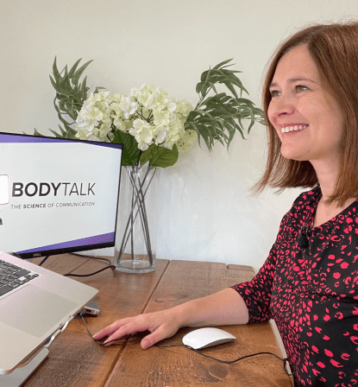“Practising with purpose is important, but belief is the foundation that underpins it all.”
Women’s Euro 2022: What Football Can Teach Us About Handling Pressure
(this blog was written before the final on 31st July – congratulations to the Lionesses!)
Football could be coming home. Again.
England’s women’s squad are just one game away from lifting their first ever landmark trophy in their 14th major tournament, as the Lionesses prepare to face Germany in the final of Euro 2022 on Sunday.
The stakes couldn’t be higher.
But how do players deal with the pressure of the international stage when the eyes of an entire country are on them?
Handling pressure
Adopting the right mindset and visualising success is a crucial part of handling pressure and is a skill practised by many sportswomen and men.
It’s a technique that was famously adopted by Muhammed Ali, who would visualise his fights in such detail that he would be able to confidently say how he would win and in which round he would win. He called it ‘future history’.
Former defender Faye White agrees that adopting the right mindset will be crucial for the Lionesses as they head to Wembley.
She told the Mirror:
“Knockout football is entirely different because of the stakes involved; you have to be able to handle that mindset and intensity.”
So what does the England team DO to adopt that mindset for success – and what can we learn from it?
Practise with Purpose: Preparing for high-stress situations
It can be difficult to replicate every aspect of a high-stress situation. For example, if you’re preparing a presentation in front of a large audience, it’s tricky to really reproduce the feeling of hundreds of pairs of eyes on you. However, there are many elements of situations that you can practise, and doing so can pay dividends.
For the England men’s squad, especially in the last 20 years, the real enemy on the pitch has not been the opposition, but penalty shootouts, a source of constant heartache.
Before Euro 2020, the men’s team had faced eight penalty shootouts across World Cup and European Championship games – and lost 75% of them.
This led to developing a training regime that included close attention to ‘rehearsing’ penalties. This goes beyond kicking the ball into the back of the net.
As sportswriter Ben Lyttleton, author of ‘Twelve Yards: The Art and Psychology of the Perfect Penalty Kick‘ explains, players’ practise with purpose’; that is, replicating as much as possible in advance so that anything you feel on the day is familiar, and you know that you can cope with it.
Footballers practice with purpose in three specific ways:
1) Training when fatigued
It’s (relatively) easy to land the ball in the back of the net from a penalty when your legs are fresh at the start of a game – but penalty shootouts come after 120 minutes of running around and high stress. The England squad, therefore, practises its spot kicks at the end of a long training session so they are physically used to how it will feel on the day.
2) Visualising the long walk
Many players argue that the worst bit about a penalty is walking from the centre circle. The walk feels long, and the pressure intensifies with every step. During training, players practise this and try to regulate their emotions, combatting any feelings of stress by visualising scoring. This helps to boost confidence and performance on the pitch.
3) Pausing and breathing
Nervous tension can make footballers want to take a penalty quickly so that it’s over with, but this is when mistakes can happen. Consequently, part of ‘practising with purpose’ involves players stopping at the penalty spot and taking a breath out; a minute pause to help them focus on the job and collect their thoughts.
How you can ‘practise with purpose’ to overcome performance anxiety
You don’t have to be a footballer or sports star to understand what performance anxiety feels like. Perhaps it’s a feeling of dread in the pit of your stomach before an important meeting or a dry mouth during a big presentation. You might feel your heart rate increasing at the prospect of pitching your ideas to a board.
All of these sensations are linked to anxiety and are detrimental to your performance, but visualisation techniques and ‘practising with purpose’ can help you to overcome nerves and really perform at your best.
Here are ways you can ‘practise with purpose’:
1) Speak out loud when you rehearse
If you’re preparing to deliver a presentation, rehearsing it out loud will help you to visualise what it will be like on the day. Stand up and try to imagine your audience in front of you. If you can, rehearse in the room or venue where you’ll be presenting.
By rehearsing out loud, you’ll be able to discover any potential words or points that you might stumble over, so you can be more confident that your script or content will work ‘out loud’. You will also get used to how you need to breathe to deliver your speech. Knowing how it will feel will make you much more confident and better prepared.
2) Visualise a successful performance
Imagine what a successful performance will look like? What will you say? How will the audience react? How will you stand? What will it take for you to get the perfect result?
Try to visualise your event in as much detail as possible, just like Muhammed Ali’s ‘future history’. Visualise yourself delivering a deeply engaging presentation that your audience loves.
If you can normalise the situation in your mind, you’ll improve your confidence levels and are much more confident, and you’ll be less likely to be put off by any unexpected surprises.
3) Take a pause
The power of the pause is a highly effective way to command a room and feel confident.
When you’re under pressure, a short pause for breath can help calm you down so you can be in control again. It may feel like a long time to you, but it won’t to your audience. The advantage for you is you’ll gain valuable thinking time; you can regulate your breathing and regain your confidence to power forward with authority.
When it goes wrong
Sometimes, even with the best preparation, things may not turn out the way you hope.
Despite all of the focused preparation, England’s men’s squad were defeated by Italy in the final of Euro 2020 – on penalties. Again.
So what can you do when things go wrong? Ultimately, you can’t control what happens, but you can control how you feel about the results.
There’s a natural tendency for us to adopt a ‘negativity bias’ when things go wrong: we blame ourselves and look at everything we did wrong.
However, by trying to shift the focus on what went well, you will take the first step towards improving it for next time.
Rather than letting that negativity creep in, which can allow us to visualise future failures, try and focus on the positive. What did go right? How did you feel at that moment? How can you harness the good elements to move forward?
Emotions can easily override the logic in our brains, and it can often be difficult to see the good points from a disappointing moment. But give yourself a little time and space, and try to override the negatives with as many positives as you can.
England v Germany
At the time of writing this, all hopes are pinned on the Lionesses beating Germany in the final and bringing home the silverware.
But even before a ball has been kicked in this final, it’s already a success for women’s football. The tide is beginning to shift. People are starting to take the women’s game seriously.
Alessia Russo’s goal against Sweden – a sweet backheel into the net, nutmegging the keeper in the process – has been hailed as ‘one of the best you’ll ever see‘.
We’ve seen record attendances too: the tournament broke the record for the most fans at a Women’s Euros during the group stages, with more than 240,000 spectators even before the knockout stages began. Sunday’s final at Wembley Stadium is a sell-out – with 87,200 eager fans coming to watch their sporting heroines.
The Lionesses have inspired a new generation of girls to believe they can play football.
So practising with purpose is important, but belief is the foundation that underpins it all.
Belief that you are good enough.
Belief that you can succeed.
Belief that you deserve to be where you are in that moment.
And, for now, belief that it’s coming home.
The BodyTalk Podcast – Confident Communication from Body Talk on Vimeo.







